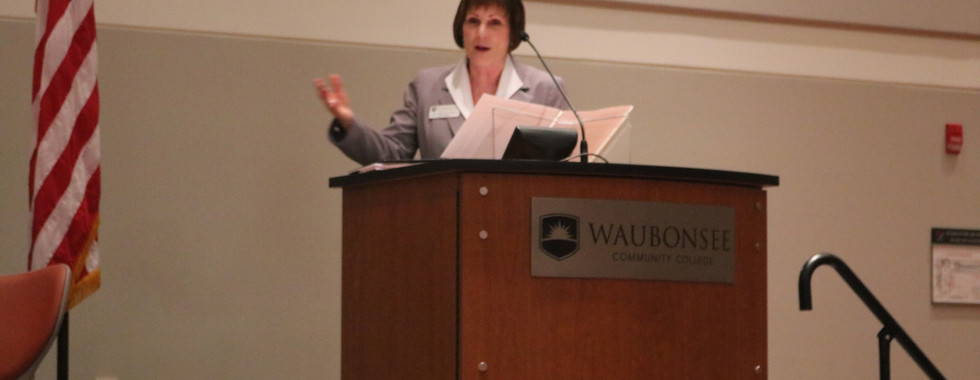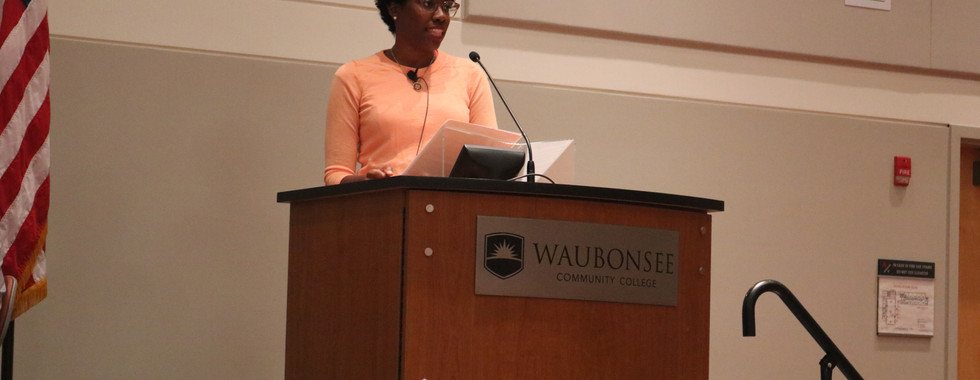U.S. Reps Underwood, Foster sponsor panel on student debt
- Megann Horstead

- Apr 3, 2021
- 3 min read

U.S. Rep. Lauren Underwood, D-Naperville, and U.S. Rep. Bill Foster, D-Naperville, headlined a panel discussion on student loan debt Aug. 5 at Waubonsee Community College.
With a panel of six and an audience of dozens, topics included the importance of financial literacy, how to find assistance with student loan repayment and what can be done to promote college affordability.
To date, the nation’s cumulative student loan debt amounts to more than $1.5 trillion. This figure makes for the second largest category of consumer debt behind mortgage.
Foster said the nation needs to prioritize education so it is more affordable and accessible for students.
“Our current system disproportionately hurts students who do not come from wealthy families,” he said. “A high cost of college makes education far less attainable for low- and middle-income students.”
Beth Ingram, provost for Northern Illinois University, said the $1.5 trillion figure referenced by the panel is disguising how the student loan debt crisis impacts people on different levels. It does not outline the number of individuals who start but don’t complete their time in higher education with a degree. Ingram said it is a big concern when students, who take on debt, do not complete their degrees, enabling them to find jobs that could reduce the chance of defaulting.
Underwood, who sits on advisory councils for education and labor, said the student loan debt crisis is having a ripple effect across the nation.
“This burden falls heavily on our young people but is also being felt increasingly by older generations who are taking out loans to help their kids and their grandkids,” she said.
Foster wanted to be clear that every student should have access to quality education that does not depend on the zip code that they grew up in or how wealthy their parents happen to be.
Several made mention of the positives to seeking higher education and how it helps shape the local workforce. However, Foster said the question of how to make college more affordable for everyone remains a challenge. He said that navigating the student loan debt crisis is not going to be an easy feat.
“Most of the players in student loans are good, but there are some bad apples,” Foster said. “There are some rules that aren’t being followed.”
Underwood shared that sentiment.
“This is a multi-faceted crisis of a confusing and complicated financial aid process [that] lacks regulation of student lending and predatory unscrupulous debt collectors,” she said.
Underwood went on to criticize the track record of U.S. Secretary of Education Betsy DeVos.
“The situation for students and their families has gone from bad to worst,” she said.
The panel advised those interested in pursing higher education to locate grants and scholarships whenever possible to close funding gaps. Should it not be enough, several recommended federal loans before turning to private loans.
Panelists said area institutions for higher education are doing their part to reduce student loan default rates.
“We’ve made a conscious effort to reduce the number of loans that we give out—and that might seem counterintuitive—but we have learned that a lot of students when they are offered a loan take the full amount, even though they may not need that,” said Christine Sobek, president of Waubonsee Community College. “They don’t understand necessarily the relationship to the amount they’re borrowing to the amount they’re going to have to pay back. We purposefully try to give as few loans as possible.”





















Comments